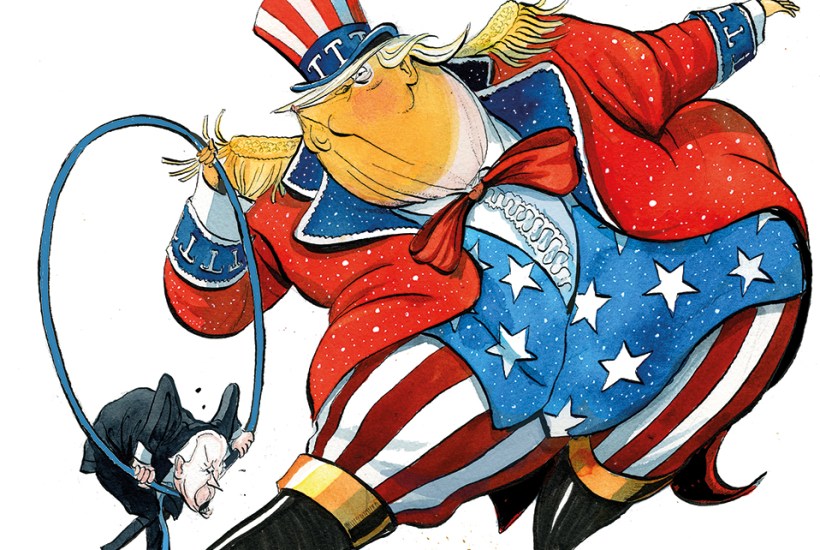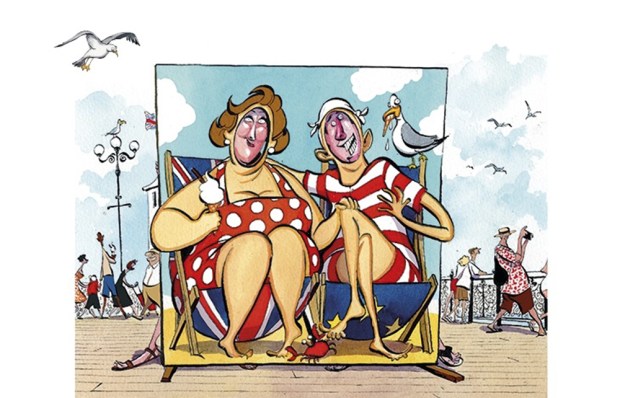An American academic told me that during the 2016 presidential election nobody in academia believed there was the faintest chance Donald Trump would win. Except for the primatologists, that is.
It was that silverback gorilla, alpha male thing – and Trump played the role freakishly well. One election tweet showed him enthroned in his private jet eating a KFC meal, gravy and all.
Already a subscriber? Log in
Subscribe for just $2 a week
Try a month of The Spectator Australia absolutely free and without commitment. Not only that but – if you choose to continue – you’ll pay just $2 a week for your first year.
- Unlimited access to spectator.com.au and app
- The weekly edition on the Spectator Australia app
- Spectator podcasts and newsletters
- Full access to spectator.co.uk
Or
Unlock this article
You might disagree with half of it, but you’ll enjoy reading all of it. Try your first month for free, then just $2 a week for the remainder of your first year.















Comments
Don't miss out
Join the conversation with other Spectator Australia readers. Subscribe to leave a comment.
SUBSCRIBEAlready a subscriber? Log in